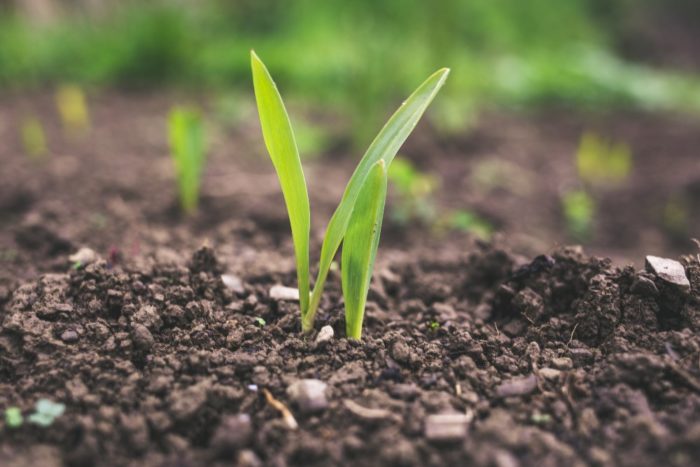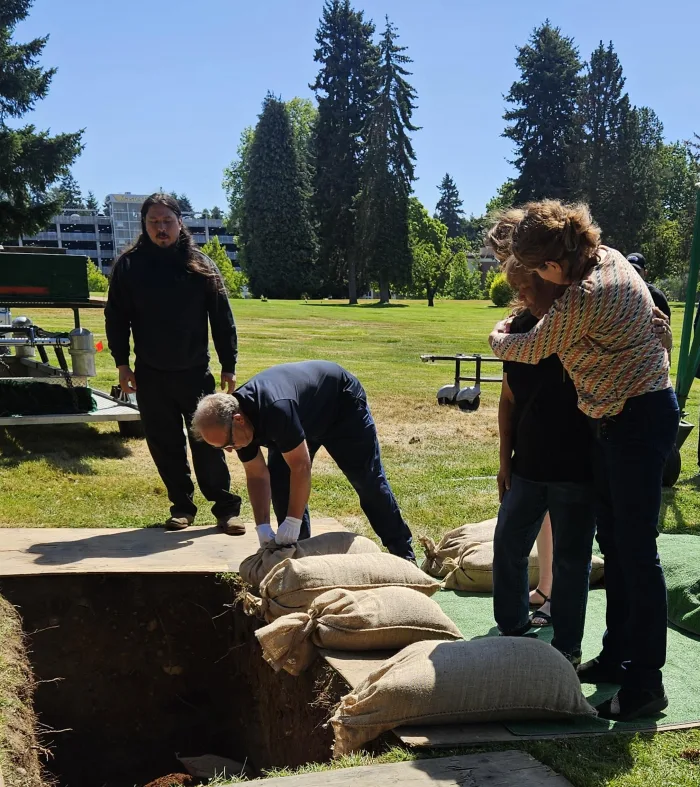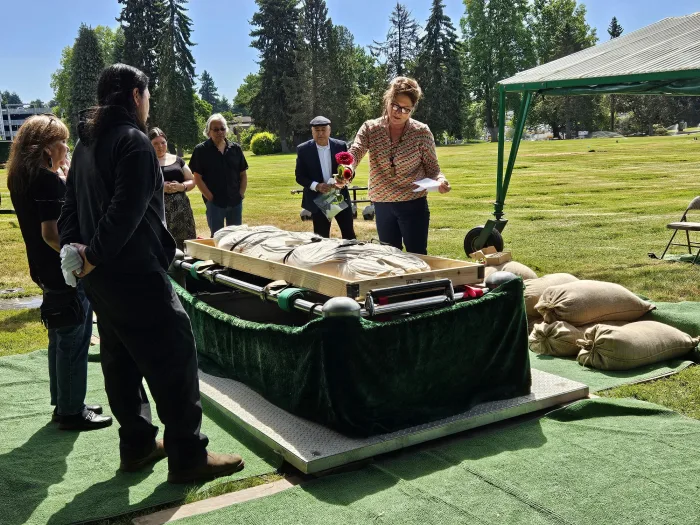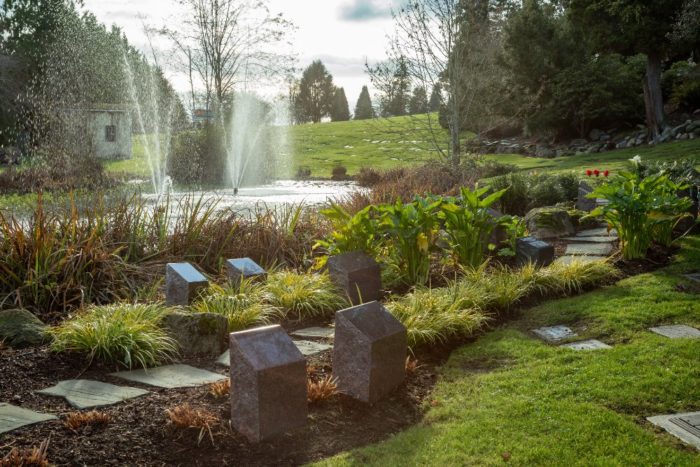
At BONNEY WATSON, we understand losing a loved one is a difficult and overwhelming experience. We offer our clients a wide variety of disposition methods to ensure funeral plans that are unique to each individual’s life, interests, and values, including terramation services. Terramation, or natural organic reduction, is a new method of disposition that is becoming increasingly popular. In fact, Washington is the first state to legalize terramation, and we are proud to be at the forefront of this eco-friendly option. With terramation, your loved one will be returned to the earth in a natural and organic way.
What is Terramation or Human Composting?
Terramation, also known as Human Composting, is the gentle, natural process of transforming human remains into fertile soil. The natural organic reduction process is accomplished through the use of microbes that are present in everyone, combined with moisture and oxygen.
Over the course of about 60 days, these elements interact with the body to break it down gradually, resulting in nutrient-rich soil that can be used for various purposes. During this process, no chemicals or other outside interventions are used to interfere with or alter the natural decomposition process.
Whether due to environmental or personal reasons, terramation offers a truly transformative way to return our loved ones back to nature in a deeply respectful and meaningful way.


Why Do Seattle Families Choose Terramation?
Many families choose terramation for their loved ones because it is a natural organic reduction process. It helps to gradually return the nutrients in the body back to the soil, as opposed to cremation which releases about 540 pounds of carbon dioxide per cremation.
- As it doesn’t use fossil fuels nor does it create pollutants, it conserves energy.
- Terramation preserves the body using natural methods, instead of chemicals which can be harmful to the environment.
- Organic reduction allows families to use the remains in meaningful ways, such as planting trees or flowers.
With terramation, families can select a final act that enriches the earth, is gentler, more ecologically friendly, and lends itself to unique, atypical rituals and celebratory opportunities, which differ from traditional funerals.
Why Choose BONNEY WATSON for Terramation Services in Seattle?
Your Loved One Never Leaves Our Care
BONNEY WATSON has partnered with Return Home to ensure that our incredibly high standards are upheld. As a trusted industry partner, we are confident that Return Home will care for your loved one as we would, with the utmost respect and dignity. With BONNEY WATSON’s extensive customer experience, you can trust that we will be there every step of the way to support you.
Flexibility for Unique Celebrations
Terramation allows families to create their own special memorial using the rich and fertile soil that remains after the cremation process. Families can share and use the rich soil to plant a memorial garden or landscape, preserving the loved one’s memory for years to come. Contact us today to tell us how we can best serve you and your family.
Opportunity for Personal Memorialization
Creating a personalized memorial to honor the life of your loved one is our specialty at BONNEY WATSON. Our SeaTac cemetery offers a wide range of options and can accommodate any style — from simple to extravagant, modern to traditional — to effectively celebrate unique individuals. We go above and beyond to collaborate with independent venues (e.g., museums, sport complexes, clubs) so your loved one’s memorial truly reflects their lives. We also offer full event management services to ensure your time and energy is spent where it matters most: healing, reflecting, and with loved ones.

Seattle Terramation Services – Frequently Asked Questions
Currently at BONNEY WATSON, general terramation costs start at $3,795.00. For more specific information related to your unique preferences, view our full General Price List. General Price List.
It is BONNEY WATSON’s commitment to serve your family as personally as possible. Our family-owned business has never had a problem serving a family due to limited resources. Our responsibility will be to find someone who can meet this commitment if we are unable to do so.
The process of terramation, also known as natural organic reduction or human composting, occurs in four phases.
Phase 1: Laying In
The first phase of the terramation process, known as laying in, begins with the careful bathing and dressing of the loved one. Once they have been carefully prepared, they are laid into their vessel on a bed of straw and alfalfa to cushion them as they decompose.
Phase 2: Terramation
Once the laying ceremony is completed and the vessel is closed, a unique form of oxygenation that occurs within specialized vessel, oxygen flows through the body and stimulates the growth and activity of microbes throughout the cells. Furthermore, terramation functions as a natural organic reduction process, transforming our bodies into rich organic matter that can be used to nourish other living organisms and ecosystems.
Phase 3: Screening
After four weeks, the body has transformed into fertile soil that is ready to be screened for any inorganic products it may contain. During this process, screws, stents, and artificial joints are carefully removed so that they do not interfere with the natural organic reduction.
Phase 4: Returning Home
After going through the screening process, the compost is finally ready to return to its home – the family. This rich soil is carefully placed in breathable burlap packages and transported to loved ones. According to state regulations in Washington, families are allowed to use their terramated remains anywhere on their property or in an area with the owner’s permission.
The natural terramation process is a sustainable method of soil creation that relies on nothing other than organic materials, moisture and oxygen. It has low-energy needs which means it can be done without heating, cooling, or any toxic chemicals in order to transform your body into nutrient rich soil.
The terramation, or human composting process takes 60 days. This unique process involves a natural organic reduction that breaks the body down into its most basic elements over a period of 30 days within an individual vessel. The resulting soil is then allowed to cure in an even more controlled environment for an additional 30 days, ensuring that it is fully ready to return home.
